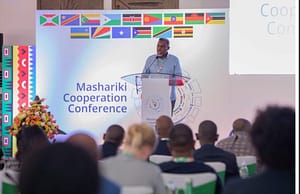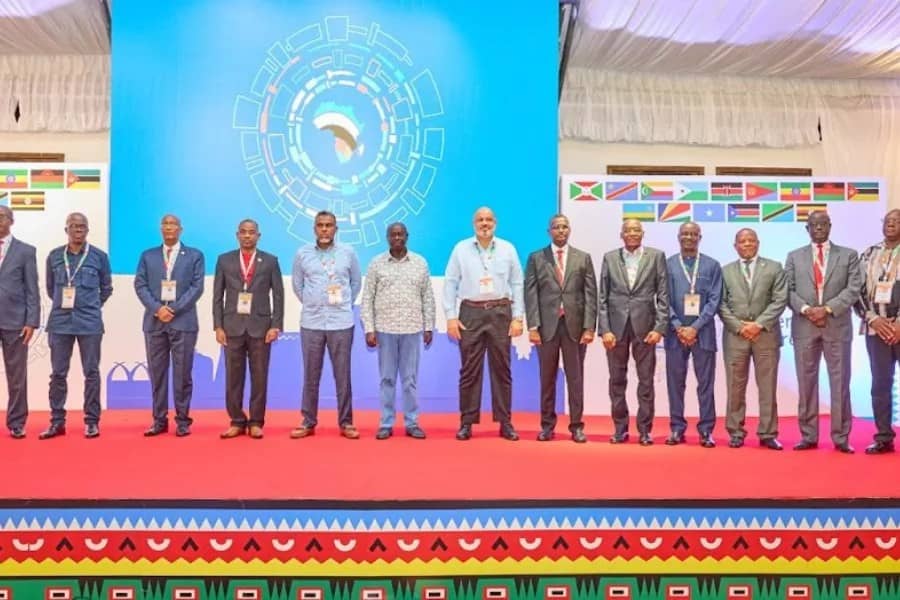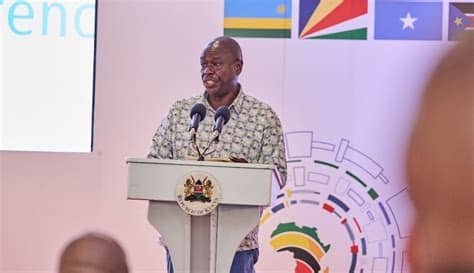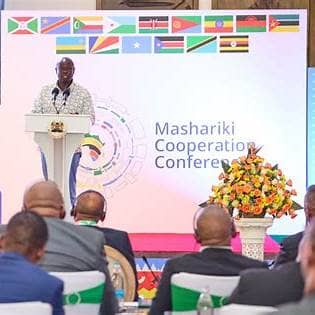



In the quiet coastal breeze of Mombasa, a storm was brewing—not of wind or water, but of ideas, urgency, and digital-age threats. At the heart of the Mashariki Cooperation Conference, African intelligence leaders gathered under one banner: unity in the face of disruption. This wasn’t just a political summit—it was a strategic alarm bell for the continent.
East Africa’s foremost security minds met to confront an evolving beast: misinformation, cybercrime, transnational terrorism, and the silent wars fought not with bullets, but with bytes. The Deputy President of Kenya, Rigathi Gachagua, boldly sounded the clarion call—Africa must weaponize Artificial Intelligence, or risk being outpaced, outwitted, and outmaneuvered.
“We need to match criminal intelligence with artificial intelligence,” Gachagua said, “or else we remain in the Stone Age while criminals operate in the space age.”
The urgency isn’t theoretical. In recent years, digital threats have outpaced regional security frameworks. Noordin Haji, Director-General of Kenya’s National Intelligence Service, emphasized how criminal networks exploit jurisdictional weaknesses, slipping through borders with encrypted ease. The fragmented nature of security cooperation in Africa is a vulnerability—one that could become catastrophic if not repaired through shared intelligence and interoperable systems.
At PowerAfrika, we understand that this is more than a security issue—it’s a continental call to intellectual awakening.
PowerAfrika’s Take: A Digital Wakanda Needs Digital Defenders
Africa’s reconstruction must include its firewalls. The continent, blessed with ingenuity and resilience, cannot afford digital naivety. PowerAfrika believes that just as Africa’s past was carved in stone, its future must be coded in silicon.
Digital sovereignty is now part of Africa’s broader liberation. That’s why we champion education platforms like MBL, a mental bodybuilding lab where African minds learn to outthink adversaries. Security doesn’t start at the border—it starts in the brain.
Imagine this: an African-led AI framework detecting terrorist chatter before it strikes, countering propaganda before it poisons young minds, protecting elections before they are subverted. That future is within reach—if we act together, and act now.
Woven Solutions: How Tools and Tech Empower Our Narrative
While the intelligence chiefs strategized in Mombasa, we at PowerAfrika see parallel battles happening at the grassroots level. Picture this:
A security officer in Eldoret powers his surveillance drone using a solar charger, maintaining surveillance when the grid fails.
A young data analyst from Kampala trains on threat analytics at night, studying under the glow of a lamp powered by a water pump.
In malaria-prone zones, operatives stay focused and undisturbed thanks to mosquito repellents, often overlooked but vital in long field operations.
Meanwhile, PowerAfrika content creators are crafting security awareness campaigns using Renderlion—producing emotionally compelling animations and data visualizations, while AiReel Generator helps condense hours of thought into viral 60-second clips. These aren’t gimmicks—they’re part of a cultural reengineering project.
This is why we urge our readers to check out our petition to rename Kotoka International Airport. Names carry power—and if we are to rebuild a new Africa, let us start with the symbols that represent our skyward gaze.
Africa’s Digital Awakening Needs Champions
Real-time data sharing, artificial intelligence, cross-border cooperation—these cannot remain ideas. They must become habits. Africa must speak to itself in code, protect itself with algorithms, and heal itself through knowledge.
We urge our readers, thinkers, and digital warriors to visit PowerAfrika.com and join a movement where minds meet. Let us not merely react to threats—let us anticipate and neutralize them.
“Africa doesn’t just need a firewall. Africa needs fire in its will.”
🔍 Little-Known Fact
Did you know that the African Union Commission has quietly been testing a continental cybersecurity framework since 2021 under the Malabo Convention, but only 14 of 55 countries have ratified it? This slow uptake leaves massive loopholes across the continent. It’s not just about laws—it’s about willpower.
